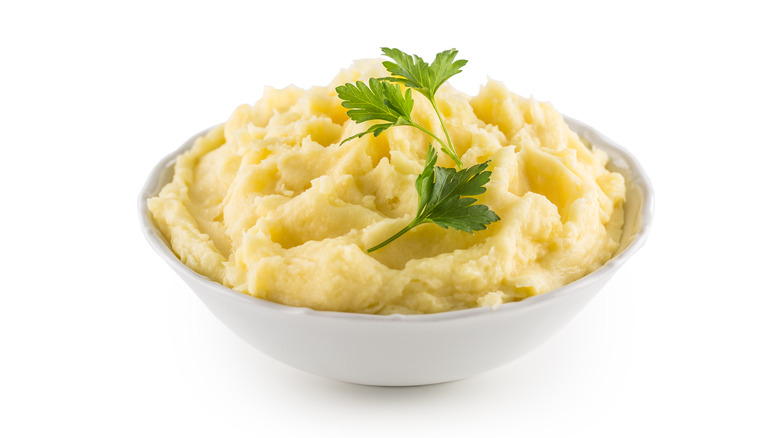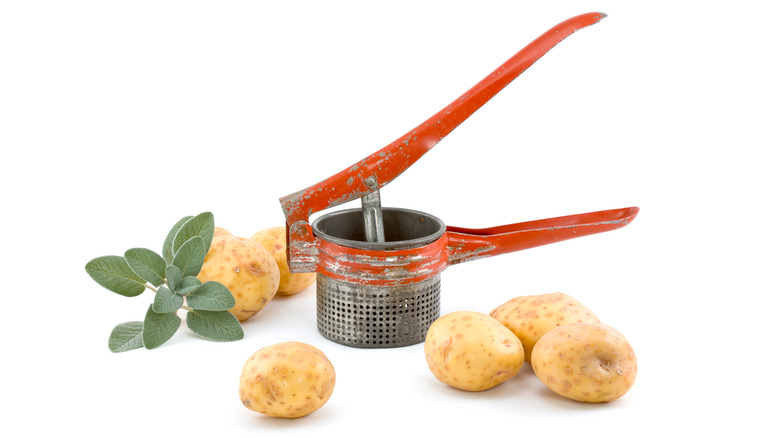The Best Way To Avoid Gluey Mashed Potatoes
Do you love potatoes? We sure do. From crispy, salty french fries to classic roasted spuds to creamy potato salad, we just can't get enough of this infinitely versatile starchy vegetable that's as at home piled next to a burger as it is alongside a refined roast.
With all the myriad ways to cook delicious potatoes, it can be hard to choose a favorite. But when it comes to comfort food, you'd be hard-pressed to find a better preparation than the childhood classic that many adults still love: mashed potatoes. In an ideal world, this side dish would come out rich, creamy, and perfectly seasoned every time. But the truth is, as simple as mashed potatoes are, they often fall prey to common pitfalls — from being too runny and gloppy to being over- or under-seasoned to being sticky and gluey. Thankfully, when it comes to that last problem, there are some surefire fixes that will ensure a perfect mash every time.
Say goodbye to glue with the right tools
One common problem that often besets mashed potatoes is glueyness. Potatoes are made up primarily of starch; in fact, the solid part of the potato (i.e., not the part that is water) is generally about 85% starch (via Cook's Info). In excess, that starch can contribute to mashed potatoes turning out gluey and sticky instead of fluffy and creamy, according to Serious Eats. One way to cut down on extra starch? Rinse off your potatoes post-chopping and pre-cooking, as well as another rinse once they're cooked, but before they're mashed.
Another way to combat extra starch, and therefore glueyness, is to invest in the right potato-mashing tools. Overworking cooked potatoes squeezes out more starch from them, contributing to glueyness; unfortunately, handheld potato mashers tend to do just that. Instead, as suggested by MyRecipes, try using a potato ricer or food mill, two gadgets which won't work your potatoes to death but will instead "mash" them gently. Perfect mashed potatoes, here we come!

